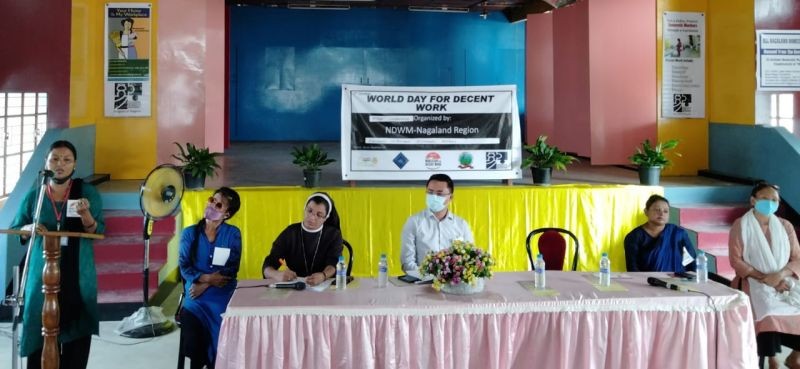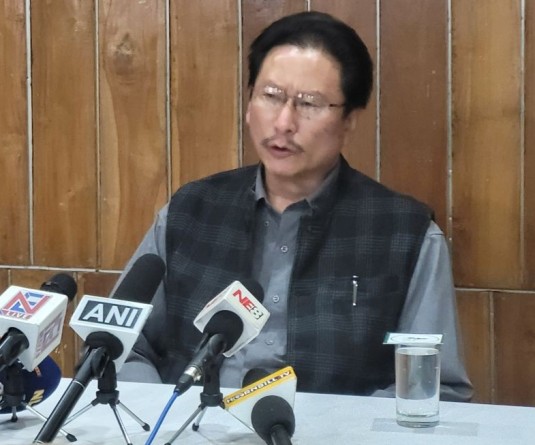
DIMAPUR, OCTOBER 7 (MExN): The COVID-19 pandemic has exposed how domestic workers continue to be vulnerable in the labor market. Here in Nagaland, domestic workers are not yet enrolled under the schedule of employment so that they can avail the privilege of minimum wages. There are also no welfare boards to avail any social security benefits.
This was highlighted during the commemoration of ‘World Day for Decent Work’ organised by the National Domestic Workers Movement (NDWM) on October 7.
Sister Pramila Lobo, Coordinator, NDWM, Nagaland region pointed out that often, employers, the public and even policy makers take domestic workers for granted because their work is within the four walls, which makes them invisible.
“Many think that they are unorganized, unskilled and illiterate but if they are unskilled how is it possible that they can manage our homes so well?” she questioned.
The NDWM stated that the State Government, employers, NGOs and the public need to have a serious reality check so as to bring about the welfare of the domestic workers. “At the same time, the domestic workers themselves need to stand together, become stronger to voice out collectively for their right and dignity. When we work together, we can achieve success,” it added.
It demanded that the State Government include domestic workers in the schedule of employment thus entitling them to minimum wages; provide protection against all types of harassment; and provide social security benefits.
The NDWM stated that the COVID-19 pandemic has exacerbated existing flaws in societies when it comes to decent work, pay and income. “It has highlighted the disastrous side effects of unregulated domestic workers labour market with dramatic consequences for health care and without adequate or no social safety net. But these conditions are not new for domestic workers, whose work has long gone unprotected,” it pointed out.
The organization informed that in 2011, the ILO adopted Convention No. 189, precisely to recognize domestic work as real work and to ensure that domestic workers enjoy equal rights to other workers. But, after many years of efforts, only a few domestic workers enjoy these new rights in practice as less progress has been made in closing the legal and implementation gap.
It informed that 81% of the total domestic workers remain informally employed. They are also more likely than other workers to work very long or very short hours and earn just a meager wage as compared to other labour markets.
It therefore urged not only the government but the private sector and employers as well to ensure fairness in sectors that bring revenues or profits. “Importantly, we urge the government to regulate and guarantee rights for those workers in order to make decent work a reality,” it added.






